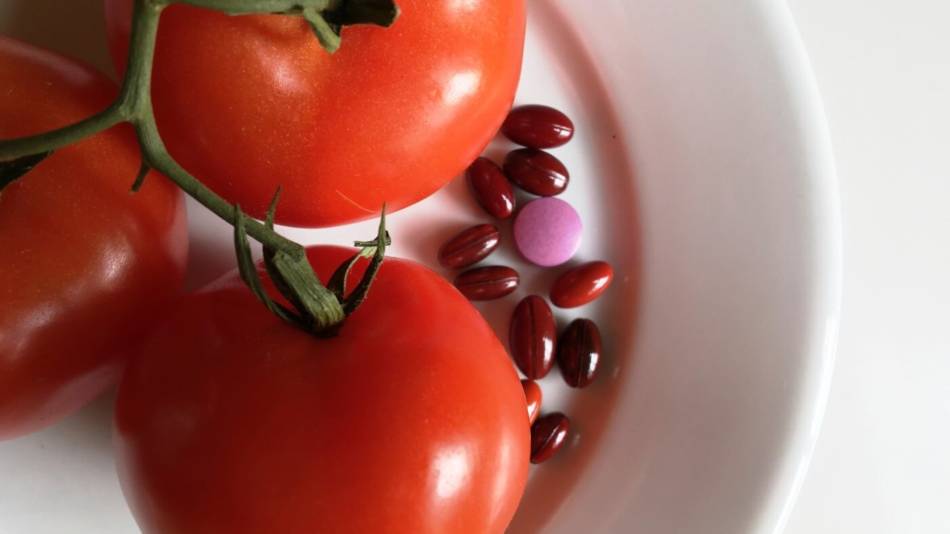Products tested in 2019
+— 32 sources
In addition the results of its expert testing, ConsumerLab uses only high-quality, evidence based, information sources. These sources include peer-reviewed studies and information from agencies such as the FDA and USDA, and the National Academy of Medicine. On evolving topics, studies from pre-print journals may be sourced. All of our content is reviewed by medical doctors and doctoral-level experts in pharmacology, toxicology, and chemistry. We continually update and medically review our information to keep our content trustworthy, accurate, and reliable. The following sources are referenced in this article:
- Chen, Ann Intern Med 2019
- Colditz Am J Clin Nutr 1985
- Darvin, Molecules 2011
- Durairajanayagam, AJA 2014
- Engelhard, Am Heart J 2006
- Giovannucci, J Natl Cancer Inst 1991
- Giovannucci, J Natl Cancer Inst 1995
- Grether-Beck, Br J Dermatol 2017
- Kavanaugh, J Natl Cancer Inst 2007
- Kucuk, Cancer Epidemiol Biomarkers Prev 2001
- Mohanty, Urol Oncol 2005
- Mozos, Front Pharmacol 2018
- Quiros-Roldan, J Funct Foods 2021
- Reid, Maturas 2011
- Richelle, J Nutr 2002
- Rizwan, Br J Dermatol 2011
- Schwarz, J Nutr 2008
- Sesso, Am J Clin Nutr 2003
- Singh, Oral Oncology 2003
- Tarshish, Clin Pharmacol Biopharm 2020
- Williams, Eur J Nutr 2019
- Xu, Sci Rep 2016
- Story, Annu Rev Food Sci Technol 2010
- Banerjee, J Obstet Gynaecol Res 2009
- Biehler, J Nutr 2011
- Borel, Br J Nutr 2017
- Clark, Urology 2006
- Corte-Real, Food Chem 2016
- Devaraj, J Am Coll Nutr 2008
- Jatoi, Urology 2007
- Tanaka, J Dermatol 2022
- Zacharisen, Allergy Asthma Proc 2002
Summary
-
What is lycopene?
Lycopene is a red-colored, fat-soluble, antioxidant carotenoid found in tomatoes, watermelon, and other red or pink fruits and berries.
-
Do lycopene supplements help?
Higher intakes of lycopene-rich foods (typically from tomato-based products) are associated with lower risks of certain cancers. There is evidence that lycopene supplementation may also decrease the risk of certain cancers and/or death from cancer. There is preliminary evidence that lycopene can reduce elevated blood pressure and lycopene-rich foods may slightly reduce elevated levels of cholesterol. Lycopene, or foods rich in it, may also help protect the skin from UV light damage. Lycopene may also be helpful in cases of male infertility. (See What It Does).

Which brand of lycopene is best?
ConsumerLab's tests revealed that one product contained only 60% of its listed lycopene; pills strengths ranged from 5 mg to 30 mg; and the cost to get a 10 mg dose of lycopene ranged from just 7 cents to 53 cents. Our current and previous tests of lycopene supplements suggest that it may be best to choose a softgel or capsule, rather than a tablet (see What CL Found and How Products Were Evaluated). Among products that passed testing, CL selected one as its Top Pick for providing a substantial dose of high-quality lycopene at low cost.-
How to use lycopene supplements?
If you think you don't get enough from foods, consider a supplement providing 5 to 10 mg of lycopene. Lycopene — from food or supplements -- is best absorbed when taken with a meal containing fats or oils. (See What to Consider When Using).
-
Safety and side effects of lycopene:
Lycopene from supplements or foods is generally safe but can cause gastrointestinal symptoms or allergic reactions in some people (see Concerns and Cautions).
As a ConsumerLab.com member, you may print a copy of this report for your personal use.
You can access a special print version by clicking the "Print" icon in the upper right corner of this report.
You can then use your web browser's print functions to print the whole report or just selected pages.
You may also email or post a link to this report using the web address above.
Non-members using the link will see a free summary and can join to view the full report.
Other means of copying or distributing this report, in part or full, are not permitted.
If you are sight-impaired and your computer is having trouble converting the text in this report to speech,
contact us for assistance at Membership@ConsumerLab.com or by
phone at 914-722-9149.





















